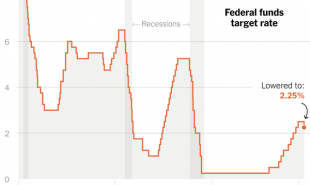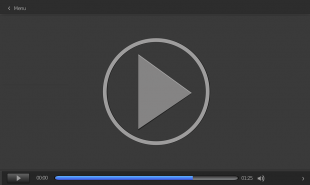
What Just Happened With Qatar?
Krishnadev Calamur and The Atlantic
Six Arab countries—Saudi Arabia, Egypt, Bahrain, the United Arab Emirates, Libya, and Yemen—severed their relations with Qatar on Monday over its alleged support of terrorism.
The state-run Saudi Press Agency said the move was being taken to protect “national security from the dangers of terrorism and extremism,” and accused Qatar of supporting ISIS, al-Qaeda, and the Muslim Brotherhood, as well as Shia rebels in Saudi Arabia and Bahrain. The other Arab nations announced similar measures, as did Maldives, the tiny country in the Indian Ocean. Under the move, Saudi Arabia closes its borders with Qatar and ended land, sea, and air contact with its neighbor. The Arab nations also suspended Qatar from the military coalition that’s fighting in Yemen’s civil war against Iranian-backed Houthi rebels.
Qatar, in its response, said there was “no legitimate justification” for the move, accusing the Arab states of violating its sovereignty. Qatar is energy-rich, but heavily reliant on food and other essential supplies that are brought in by trucks across its border with Saudi Arabia. News media reported panic buying of goods in the country following the announcement. Qatar’s stock market fell 7.2 percent.
The move could have far-reaching consequences for U.S. alliances in the Middle East, as well as the U.S.-led effort against ISIS in Iraq and Syria. Qatar is home to the Al Udeid Air Base, the largest U.S. military base in the region where 11,000 U.S. personnel are stationed. The base has been used to stage attacks against ISIS targets. The move also comes just weeks after President Trump visited Riyadh and called for a united front against ISIS and extremism.
Saudi and allied relations with Qatar have been tense for years. In 2014, some of the same countries pulled out their diplomats from Qatar citing similar concerns. That dispute took nearly a year to resolve. Saudi Arabia also withdrew its ambassador to Doha from 2002 to 2008. But Monday’s move goes further: Among other steps, it closes Saudi Arabia’s land border with Qatar, a move that could have severe economic consequences for the country.
Qatar’s alleged support for the Muslim Brotherhood, which is banned in Egypt, elements of al-Qaeda, Hamas, ISIS, and other Islamist extremist groups has been well documented, and it’s this support that has been at the core of its disputes with its fellow Arab states. But the catalyst for Monday’s decision appears to be a Qatari news report last month that quoted Qatari Emir Sheikh Tamim bin Hamad al-Thani as criticizing Saudi Arabia, praising Iran, Saudi Arabia’s main regional rival, and describing Qatar’s relations with Israel as “good.” Qatari officials said the remarks were fake, and that news websites were a victim of a “shameful cybercrime.” But as David Roberts, a professor of defense studies at King’s College, wrote for the BBC: “The key problem was that these comments simply voiced out loud what many have long understood as Qatar’s true policy positions.” He adds:
[P]articularly under the leadership of the former Emir Hamad bin Khalifa al-Thani, Qatar sought to carve out a unique niche for itself and its policies, such as augmenting relations with Israel or Iran, and rejecting the wider consensus of the regional group of the monarchies, the Gulf Co-operation Council (GCC).
Previous regional attempts to persuade Qatar to change its policies haven’t succeeded, but Monday’s announced steps go further than any previous bid. Qatar, which now finds itself both regionally and economically isolated, may have few cards left to play.
Now a Blockade
via zerohedge
In what has emerged as the most significant escalation to result from the Qatar diplomatic crisis - which pits two of OPEC’s largest oil producers, Saudi Arabia and the UAE, against the world’s biggest exporter of liquefied natural gas and further disrupts stability in the region - the biggest Middle East oil and container ports banned all vessels sailing to and from Qatar from using their facilities.
According to a notice posted on the website of Inchcape Shipping, Saudi Arabian and Bahraini authorities closed off all of their ports to Qatari-flagged vessels or ships traveling to or coming from the Persian Gulf state, in what has been described as a naval blockade.
As Bloomberg adds, container and oil terminals in the United Arab Emirates also closed off traffic to any ships touching Qatar.
Saudi Arabia’s eastern coast is home to the port of Ras Tanura, which state-owned Saudi Arabian Oil Co. says is the biggest crude terminal in the world. Jebel Ali port, the region’s biggest container terminal, will be restricted from Tuesday until further notice, its operator Dubai’s DP World Ltd. said in an emailed statement according to Bloomberg. In the U.A.E., DP World operates Jebel Ali along with Dubai’s Mina Rashid and Mina Al Hamriya ports. Elsewhere, government-owned Abu Dhabi National Oil closed its crude and refined-product ports to any vessels to or from Qatar. The port at Fujairah, a main oil transit and refined product hub, said Monday it was closed to Qatar-linked traffic.
Read more by Soren K.Group








